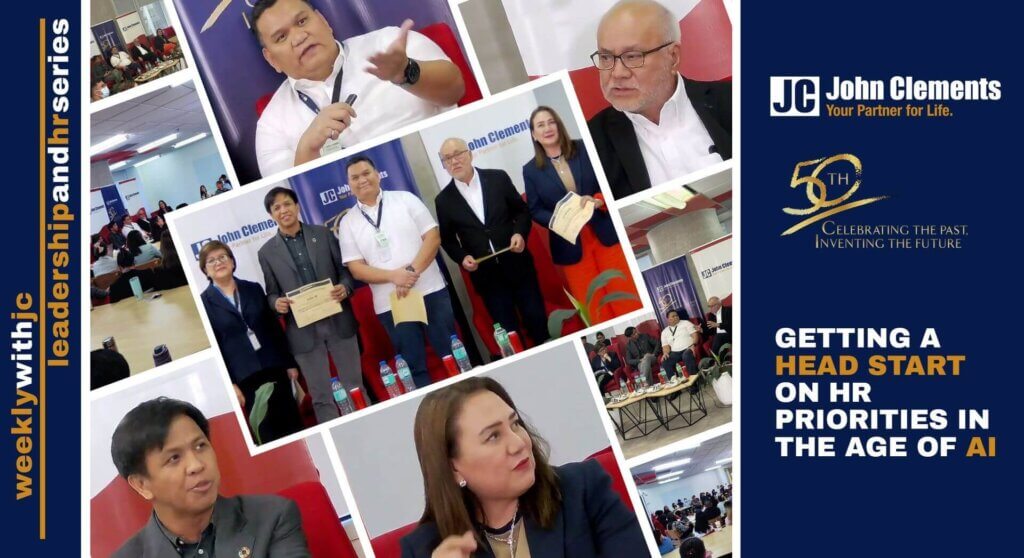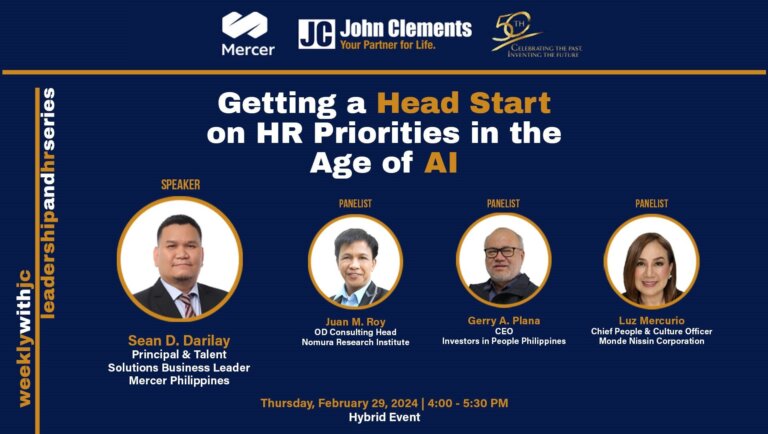In the dynamic landscape of today’s corporate world, organizations are continually seeking innovative ways to gain a competitive edge and streamline their operations. Among the myriad of technological advancements, one paradigm stands out as a beacon of transformation: Artificial Intelligence (AI). As we evolve along with the digital age, the integration of AI in human resource management and other organizational frameworks has become not just a choice but a strategic imperative.
“The anticipated expansion of the global AI market is forecast between 2019 and 2026. Key drivers for this growth include a notable rise in the utilization of 5G technology, cloud computing, and the Internet of Things (IoT). Internationally, prominent business leaders and data analysts are leveraging contemporary artificial intelligence trends to expedite business development and enhance productivity.”
Emergence of AI in the Philippines
Given its substantial workforce, the Philippines stands poised to become a key player in effectively using artificial intelligence. The country’s abundance of skilled professionals could contribute significantly to the advancement and application of AI technologies.
Citing the study by Rosales et al. (2020), the present AI technologies can automate approximately 50% of job activities in specific Southeast Asian countries. The emergence of artificial intelligence and deep learning techniques is expected to redefine the landscape of various economic sectors by automating a substantial number of white-collar jobs. In July 2018, the International Labour Organization released a report indicating that 49% of employment in the Philippines carries a high risk of automation.
The Age of AI in Human Resources
Upon attending the Weekly with JC Leadership and HR Series discussion on “Getting a Head Start on HR Priorities in the Age of AI,” it was emphasized that staying abreast of the global AI trend requires more than just providing tools to employees; it necessitates a focused effort on proper training and reskilling initiatives. In this context, human resources, particularly talent development, emerges as a key driver in ensuring employees are well-prepared and equipped to thrive in the evolving landscape of AI. This comprehensive approach ensures not just technological adoption but the sustainable development of human capital in the face of AI emergence. Mr. Sean Darilay from Mercer Philippines identified the “Four Major Areas” HR needs to focus on.
- Driving Human-Centric Productivity: Recognizing that AI in human resource management is anticipated to boost efficiency by 21% to 35%, HR should focus on crafting a work environment centered around human needs, incorporating comprehensive training and upskilling programs to empower employees to fully embrace AI tools. This involves overseeing workflow and processes and ensuring that the work environment is conducive to fostering employee productivity.
- Anchoring Trust and Equity: Frequent organizational changes, such as re-engineering and re-structuring in preparation for AI integration, can disrupt some employees’ work and create uncertainty about the stability of their positions. This concern among employees regarding the continuity of their roles is a challenge many organizations face when implementing workplace programs, emphasizing the need for sustainability. Furthermore, fostering a workforce that thrives involves instilling a sense of pride in the organization, creating a strong sense of belonging, and valuing employees’ contributions. Failure to operate in a manner that builds trust may result in the erosion of confidence and pose a significant risk of increased attrition and talent disengagement.
- Boosting the Corporate Immune System: This is paramount, especially considering alarming statistics indicating that 8 out of 10 employees experience burnout. In this context, HR assumes a pivotal role as a risk advisor. To counteract burnout, it is imperative to foster engagement and inspire employees, ultimately cultivating a more resilient organizational culture. Furthermore, safeguarding employees from cyber risks extends beyond the provision of adequate technology; it necessitates instilling a mindset and behavior that empowers them to proactively respond to and defend against cyber threats.
- Cultivating a Digital-First Culture: It is important to transform the way employees work in tandem with the adoption of new technologies. Mere acquisition of cutting-edge technology proves futile without a corresponding shift in mindset. Enthusiasm for AI is widespread, but ensuring preparedness demands a focus on digital readiness and literacy. Critical thinking becomes paramount in processing information, emphasizing that we should not merely follow the trajectory of technology but actively engage with it. By fostering a digital-first mindset, organizations can harness the full potential of technological advancements and empower employees to navigate the digital landscape with confidence and adaptability.

Key insights derived from the discussion highlight the indispensable role of technology in our industry’s survival. The 21% increase in productivity of employees is comparable to additional days in one week, presenting a valuable asset for an organization’s progress and advancement. On the other hand, it is crucial to recognize that technology serves as a tool for people, not a replacement for human collaboration. In navigating the rapid evolution of AI, cultivating resilience to adapt to global changes becomes essential. Preserving the distinct qualities of human contribution within the workforce is crucial, requiring a commitment to skill enhancement and continuous learning. Positioned at the core of the organization, HR emerges as the driving force behind the development of resilience and agility within the workforce, ensuring a harmonious integration of technology and human capabilities.
Discover trends and forecasts in your industry and learn all about the key drivers shaping different sectors. Visit our Events page for more details.




